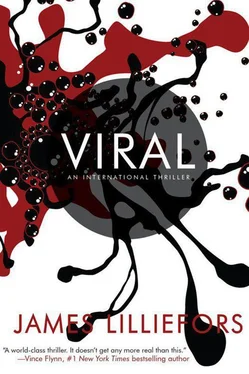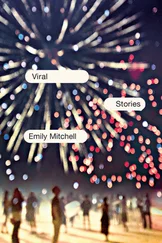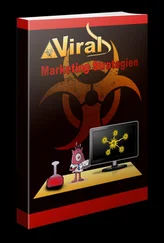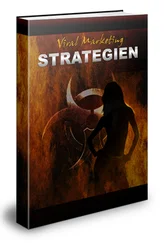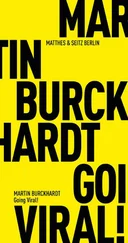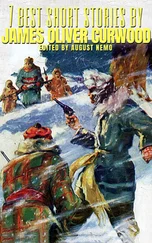“Who hired you? Franklin?”
Mallory ignored his question. “You almost pulled this off, didn’t you?” he said. “Depopulating a nation in a single night. You assumed you could buy anything. Even a country. That’s what Landon Pine said.”
“Maybe I can.”
“You could even buy a news story for several million dollars.”
“Maybe I did.”
“Maybe you did. Indeed. And then you got the idea of hiring a terrorist network to be your enforcer. It never occurred to you that maybe you couldn’t trust them. That maybe they’d try to sabotage you, no matter how much you paid them.”
“Look, my friend.” He smiled deferentially, as if talking to a child. “There are reasons this story can never get out. What are you going to do with this?”
“I’m not your friend. And I don’t know yet. What’s it worth to you?”
Gardner stared at him, his eyes not blinking. “It’s for sale?”
“No.” Mallory laughed. “It’s not for sale.”
“Well, I’ve got to go, then. I’ll have someone contact you.” Gardner started to walk off.
Mallory was right with him, though. “Your other fatal flaw, Pine told me, was that you did it all by remote control. Didn’t bother yourself with the details. When you caused hundreds of thousands of people to die in Sundiata, you didn’t want to know the details. And you paid enough money to Pine that you didn’t have to.”
Gardner had stopped again. It was hard to tell, but he seemed angry.
“Now, for the bad news. You’re going to be indicted on a whole slew of charges. Beginning with the theft of nearly two billion dollars in investors’ money.”
Gardner looked at Charlie’s laptop, his eyes suddenly hard with anger.
“How’d you get that?”
Charlie reached into his pocket and pulled out a small, metallic circular object. He clicked a button on the side of the disk and held it in the air. Moments later, a moth-size device fluttered through the air and attached itself to it.
“You know what this is. It’s a nano-drone.” Gardner looked, frowning. “You know about that, don’t you? It’s something you’ve been working on. Not top priority, I guess, with everything else you have going.”
“What are you talking about?”
Charlie smiled. For several years, the U.S. government had been working with private industry to develop nano-drones—insect-sized surveillance cameras that could enter a room, video-record what went on inside, and come back out. DARPA—the Defense Advanced Research Projects Agency, the U.S. agency responsible for future weapons technology—had spent millions of dollars testing prototypes with mixed results. Charles Mallory’s company had agreed to test-drive one of the prototypes under development. So far, it had worked exceptionally well.
“Anyway. I guess I’ll see you in court, as they say.” He watched Gardner, and Gardner stared back. A staring contest. Charlie broke it by smashing his right knee into Gardner’s mid-section. Gardner went down immediately. Charlie walked away.
Washington, D.C., The Four Seasons Hotel
JON MALLORY LOOKED UP expectantly as Joseph Chaplin slowly opened the door of Room 607, gripping a handgun. He pulled the door toward him and stepped back, allowing Charles Mallory to enter the room.
The last time Jon had seen his brother had been on a dirt road in Mancala. Jon had just saved his life, and they had briefly bonded in a way that had seemed strange to both of them. But seeing him now, it felt to Jon as if the last episode had never happened. Something about Charlie made Jon feel slightly diminished again. It was an old paradox, dating to their teens: Charlie inspired him from a distance but intimidated him in person.
Chaplin locked the door and followed them into the hotel suite. Charlie’s face and arms were cut and bruised, Jon saw.
“Guys want a beer?” Chaplin said.
“Okay,” Jon said.
Charlie nodded, sat on the arm of a sofa.
As Chaplin left the room, Charlie took something from his shirt pocket and handed it to his brother: a computer memory stick.
“That’s for your story.”
“What is it?”
“It’s what Isaak Priest left for me in Mungaza. Isaak Priest, aka Landon Pine. Background for your story. The whole thing’s right there. I’ve got video feeds for you, too. It’s a big story, Jon, and it’s not over.”
“It’s not?”
“No. The only thing that can shut it down is the truth. You have that now. All you have to do is put it together and tell it.”
“Are you going to be a part of it?”
“I am a part of it. It’s our story, Jonny. Okay?”
Jon felt a welling of emotions. He had been writing the story for two days now, working with Roger Church, and his feelings of anger and revulsion over what he had seen in Sundiata and what had happened to him in Mancala had receded. The story gave all that a purpose. He had been a witness.
“You saved my life, Jon. I don’t know what to say.” Charlie sighed, and shoved his hands into his jacket pockets. “I thought you were someone who kept your head down and just waited for things to pass. The way most people are. But you’re not.”
“Sometimes I am.”
“Not when it really mattered, you weren’t.”
Chaplin brought in two Heinekens, handed one to Jon, then one to Charlie. He went into an adjacent bedroom and pulled the door closed.
“Chaplin will take care of you. It won’t be like in Switzerland. Things are going to break in another day or two. You can stay here for now. Okay?”
The beer tasted good. Jon waited for Charlie to look at him again before asking the question that had been on his mind for weeks. “Why did you really get involved with this?” he said. “And bring me in. I keep thinking this was really about Dad.”
Charlie looked away for a moment, his eyes confirming it. “The story’s on that stick,” he said, pointing with his beer bottle. “It started there, yeah. He knew about this. He knew the sketchy details, anyway. He contacted me ten days before he died. He had this idea that we could work on it together. And that maybe you could write about it. It was his idea getting you involved, not mine.”
Jon let that idea settle in his thoughts. “Was he killed because of it?”
“I think so.” Charlie sighed and drank his beer. “I think he had talked to too many people by then, saw too much of what was happening. He didn’t want to just go away quietly.”
“Who killed him?”
“I think it was the Hassan Network. Mehmet Hassan.”
“Why?”
“Business. Protection. But the person to blame isn’t the one who pulls the trigger. It’s the one who pays to have it pulled.”
“Perry Gardner?” Jon said, guessing.
“That’s where the road leads, yeah.”
“Why?”
“I guess because he could. He was able to purchase anything, and in the process to get away with things that no one else could get away with. And so he purchased a terrorist group. He was infected with an insane idea that he thought made sense. With the notion that he could play god. And that infection spread among a very powerful group of people. That’s the story you need to tell.”
Jon leaned back in the armchair, trying to assimilate what Charlie was telling him. He drank his beer.
“Did Dad know about Gardner?”
“I don’t think so. That would have made it easier. But he hadn’t gotten that far yet. He might have thought Gardner was involved tangentially. As an investor. But he didn’t have the whole thing. He knew about VaxEze and the investments. But Gardner hides well.”
“Why did he want to bring me in?”
Charles Mallory looked at the carpet, then at his beer label. “Because he thought you could do it. This needs to be told. If it isn’t reported, it goes on. Dad understood that. He actually respected the power of the media.”
Читать дальше
